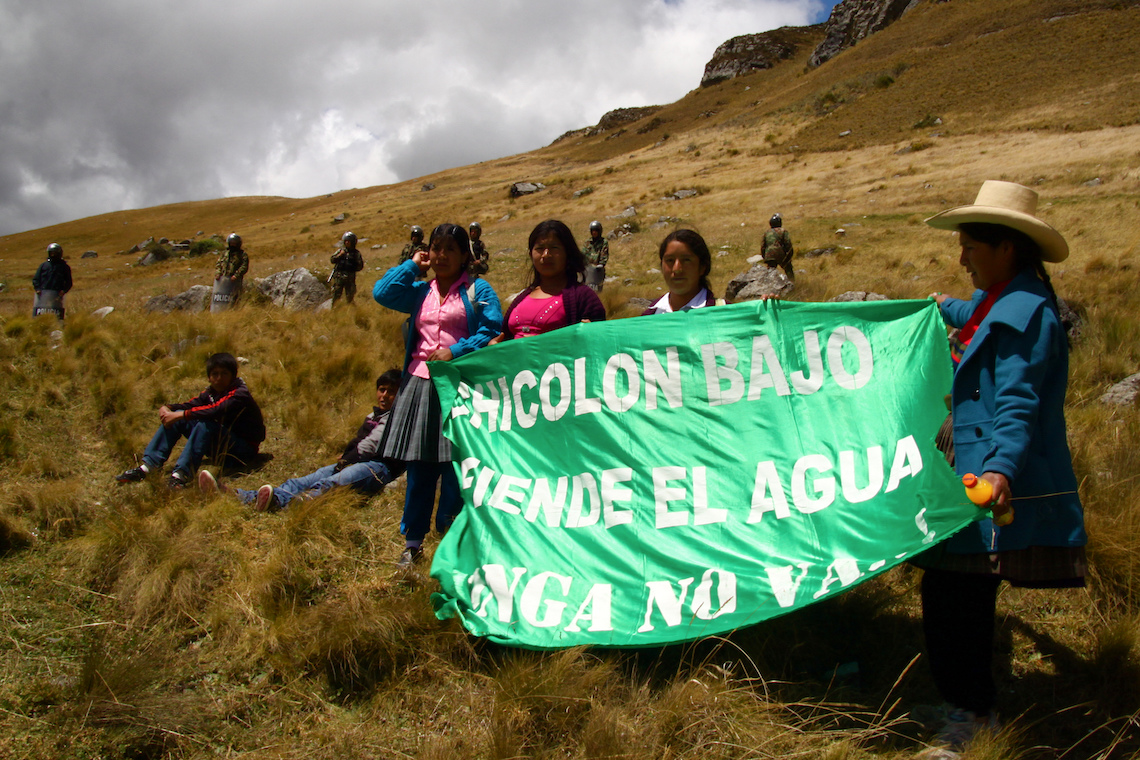By analyst
Newmont Mining, the world’s 2nd largest gold miner, walked away from its $5 billion Conga copper and gold project in Peru in 2016, due to relentless community opposition. (Image courtesy of Golda Fuentes | Flickr.)
It’s sounds too good to be true, but a new company is proving miners they can foresee opposition or any other form of social conflict related to their projects, before they even attempt going through a licencing process.
Chalkstone, a UK-based company founded by Donald Bray, a political anthropologist and academic at the University of Cambridge, bases its success in a very unique method, applying what’s known as “granular social intelligence.”
“We take a systemic approach and mix methodologies, combining big data and quantitative analysis with ethnography, qualitative interviews and focus groups, all of which help us dig deep into particular issues and accurately define the social stance of a target group,” Bray explains on the phone from his home in Paris.
“We are not interested if the community is, in any way, being taken advantage of” — Donald Bray.
Before going further, he’s quick to note that the goal of his company is not just to help mining companies get what they want, but to assist them in building mutual trust with the groups living in the areas in which they operate.
“We are not interested if the community is, in any way, being taken advantage of,” he says. “Our due diligence runs in a number of different directions.”
The expert, with more than 15 years of experience working across the globe, particularly in conflict zones, is not saying mining companies are the “bad guys” in the story.
“It’s not that firms don’t care about CSR [corporate social responsibility] or don’t want to invest in it. The problem is that most tools currently available don’t really help them grasp the human aspect of their projects,” he says.
Donald Bray, Chalkstone founder.
Half of all risks faced by extractives companies are non-technical ones, which in turn account for nearly 75% of all projects delays. “For a mid to large sized mining company, the costs of these delays (socio-political and community risks) can add up to some $20 million a week,” says Bray. “This is huge and it deserves far more attention than mere box-ticking or forms of corporate philanthropy.”
Chalkstone already has a known success story under its belt. After an intensive study on a ruby mine and a copper deposit in Afghanistan, applying counter-insurgency tactics used by deployed troops, Bray was hired in 2015 by Gemfields (LON:GEM), the world’s largest emerald and ruby miner. At the time, the precious gems firm had committed to building an emerald mine in Colombia.
Part of Chalkstone’s work to help Gemfields enter the market was the creation of a communications platform based in text messaging, which allowed the mining company and local communities to talk freely to one another.
Named by the community as “Suna Verde” (meaning “Green Pathway” in the Muisca aboriginal language), the system kept locals updated on everything from job-training initiatives to …read more
Source:: Infomine
The post Mining industry can now predict opposition to projects before it’s too late appeared first on Junior Mining Analyst.

